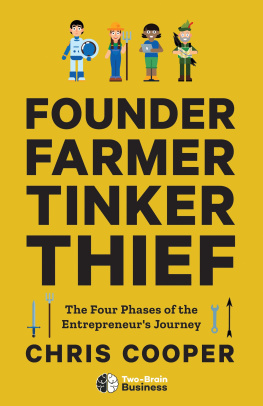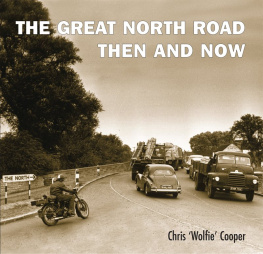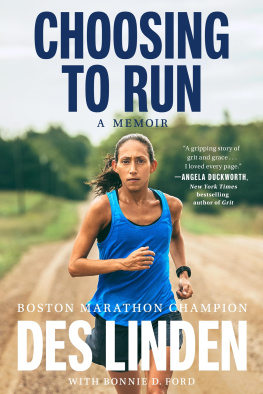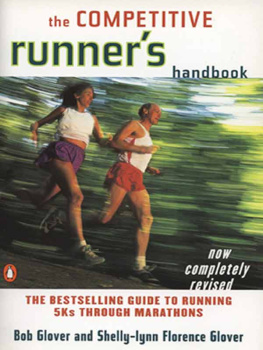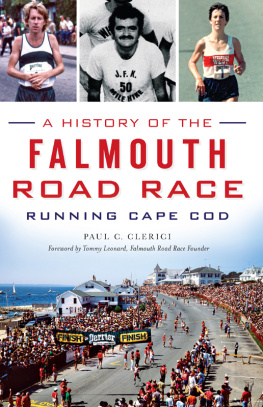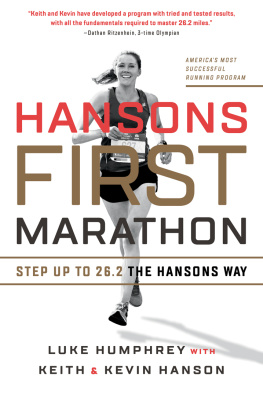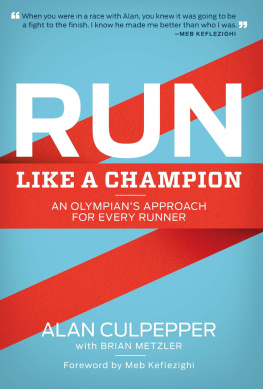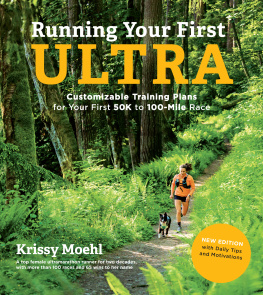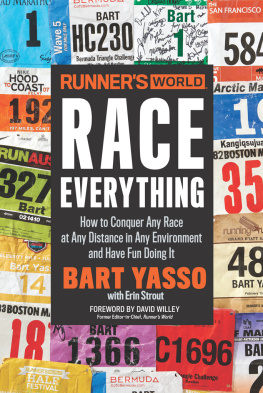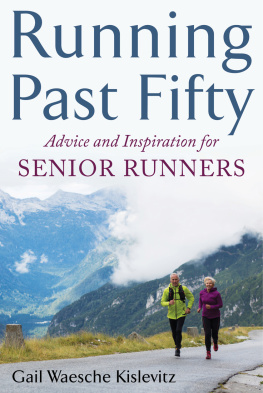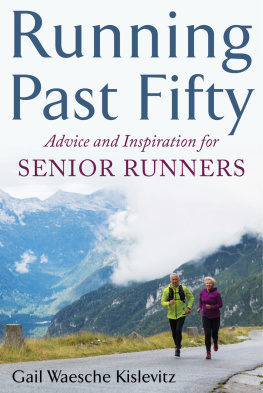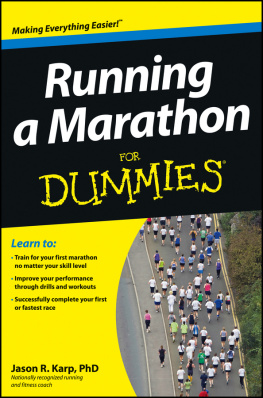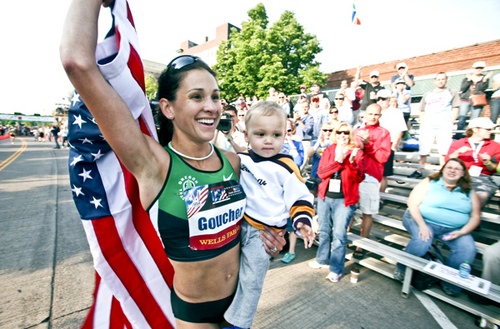1.
2.
3.
4.
5.
6.
7.
8.
9.
10.
11.
12.
13.
14.
15.
16.
17.
18.
19.
20.
21.
22.
23.
24.
25.
26.
27.
28.
29.
30.
31.
32.
33.
34.
35.
36.
37.
38.
39.
40.
41.
42.
43.
44.
45.
46.
47.
48.
49.
50.
Introduction
According to Running USA, there were more than fifteen million road race finishers in the United States in the past year, the ninth consecutive annual increase. They raced for the challenge, for the achievement, for the health benefits, and for many other personal reasons. But whether they were twenty-mile-a-day elite marathoners or twenty-mile-a-week recreational runners, each of them can invariably point to a singular performance recently or in their past as the best race I ever ran.
My Best Race is a collection of those singular performances. In this inspirational book, fifty runners, from Olympians and World Champions, to courageous disabled athletes and middle-of-the-packers, share their personal accounts of what they consider the best race they ever ran and why. Was it the race that helped their team to a championship? Was it the race that qualified them for the Olympics? Or was it not necessarily one in which they ran their fastest or placed the highest? Indeed, many consider their best race less in terms of awards or accolades and more in terms of how that achievementwin or losetransformed their lives. Take Ed Eyestone for example. How he fared at a high school cross-country meet instilled in him the confidence to one day become an NCAA champion and two-time Olympian. For him, the sheer joy he felt in that nearly forgotten local race was just as thrilling as what he experienced in his more public triumphs on the world stage.
Olympic torch bearer John Stanton says that a race should become not a test but a celebration because of the lifetime of memories it can create. Often the memory is not just about running the race itself, he says, but about the people you meet or the experiences within the race that are so special. Its those little touch points we have.
The races described on the following pages are the ones these famous and not-so-famous runners say they keep coming back to at various points in their lives for sustenance, assurance, and comfortor just to bring a smile to their face. Many were recalled with excitement, some with laughter, others with tears. And just as these athletes admitted how much they enjoyed reliving these special races with me in our interviews, I enjoyed listening to them and bringing their stories to you. I hope these stories inspire you to run your best race, if you havent run it already.
Chris Cooper
August 2013
Kara Goucher
2012 USA Half Marathon Championship
Kara and her son at the finish of the half-marathon (Duluth News Tribune)
Theres a point in a race where youre on the edge and youre pushing so hard and youre riding this line and if you push a little too much youre going to blow up, but if you keep riding that line something special can happen. On June 16, 2012 something special did happen to Kara Goucher on the streets of Duluth, Minnesota. Not all of it involved her setting a course record, however. The Olympian had finally returned home to give something back to her community, and in the end they gave something back to her as well.
Kara Goucher was only six years old when she first displayed the spunk and determination needed to win three NCAA championships and berths on two Olympic teams. I ran my first race with my grandfather when I was six, she says. He took me to this local one mile race and I got tripped at the start and had a bloody knee. He picked me up and thought Id just want to return home because I was a real girlie girl. Instead Im told I said, Lets go! Were getting beat already! Still it would be many more years before Kara would begin running regularly. In junior high I decided to try for the Triple A Award, she recalls. You had to have a certain GPA for academics, you had to do an art (she was in the band), and you had to do athletics. The two athletic options at my school were volleyball and cross-country running. I tried hitting the volleyball and my wrist hurt so bad I thought there was no way I was going to make that team. The cross-country team was meeting the next day and I heard they didnt cut anybody, so I joined. My un-athleticism actually worked out for me.
Kara continued running in high school, and in her freshman year she beat a state champion and earned a spot at the state championships for the two-mile run. Eventually she realized just how far running could take her. I liked winning, she says. I was never particularly good at anything, so for me to be able to win some races was pretty cool. In my sophomore year I qualified for the Foot Locker National Cross-Country Championships and got to ride on a plane to San Diego when it was snowing back home in Duluth. Then I learned in the hotel I didnt have to share a bed like at the state meets when we were crammed all together. For the first time in my life I felt that running was something really special and something that could take me places.
At the University of Colorado Kara was a three-time NCAA champion, but her racing career was interrupted by injuries her senior year and for the next three years after signing with Nike as a professional. I only raced once or twice a year due to injury and thought about retiring, she recalls. I really struggled with the transition from college to pro. Once she was injury free and under the tutelage of coach Alberto Salazar, however, she blossomed as an elite runner on the international stage and competed in the Beijing Olympics in both the 5,000 meters (3.1 miles) and 10,000 meters (6.2 miles). I began training more like a professional, she remembers. That whole lifestyle of getting massages and lifting weights really turned things around for me. Then Alberto convinced me to try the marathon and I loved it and really enjoyed the training and the whole process. I grew up watching Grandmas Marathon in Duluth and would hand out water to the runners and cheer on my friends, but I thought they were all crazy to run that far and I would never do that. But she did, and when Kara finished third in the 2008 New York City Marathon, it was the fastest marathon debut ever by an American woman.
Four years later after taking time off to give birth to her son, Kara was back in top form and had a decision to make. Having qualified for the 2012 Olympics in the marathon, she was given the option by her new coach, Jerry Schumacher, of going to the Olympic Trials to run the 10,000 meters or to Duluth to compete in the USA Half Marathon (13.1 miles) Championship. The race was to be run in conjunction with the annual Garry Bjorklund Half Marathon. For me it was a no-brainer, she says. I was already on the Olympic team in the marathon, and I rarely got to go home and never got to race at home. For my hometown to be hosting the championship was amazing. Duluth had supported me so much over the years and I wanted to show them how much it had meant to me. I wanted to not only win but break the course record to show everyone in Duluth that, of all the runners and Olympians who have come through there from all different countries, the girl who grew up there was the fastest.


